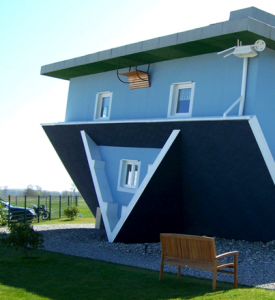University of San Diego, March 12 – 13, 2015
Deadline-CFP: 15 nov. 2014
 The Housing Question
The Housing Question
Nomad Seminar in Historiography – San Diego
University of San Diego
March 12-13, 2015
Call for Papers:
More than 140 years after Engels polemically linked urban dwelling and political project, what has become of the housing question? In the last decade, housing has been the object of intense and wide-ranging attention, but discussion has mostly narrowed down to its role within national and international economies. In this perspective, housing is but an asset subjected to the mechanisms of consumption, investment, and finance, bobbing up and down the waves, bubbles, and crashes of global capitalism. This has not always been the case. Since the 19th-century outcry over the living conditions of the working class, housing has had a long and meaningful history as the sphere in which progressive reform has been imagined, debated, and implemented, and where social values, political projects, and new forms of collectivity could be tested and shaped.
The history of the question and the question of history:
This conference seeks to recover some of the rich political, social, or aesthetic scenarios contained in the history of housing. To this end, we invite papers that examine or re-examine key moments of the last century and a half during which artists or architects asked or answered the question of how to dwell. We understand housing as a project (both theory and praxis) that engaged with forms of inhabiting on a large scale (mass housing being only one particular answer) and which contained, in some form or other, the elements of a notion of community. We distinguish housing from mere residential architecture by the political project embedded into it, and we are particularly interested in papers that combine the discussion of built form with analysis of policy, social values, political agendas, or larger ideological trends, or which retrace moments in which architectural form was believed to transform social and economic relations. Topics can range from typologies of affordable units to the discourses, values, and policies that underpin the creation and promotion of exclusive gated communities.
The conference invites also investigations of the intersection between the aesthetic choices related to the house and larger social questions. In that sense, we are particularly interested in discussions of artistic practices that have sought to reframe the question of housing, either through the production of domestic objects or interiors, or through modes of representation.
The Nomad Seminar:
This two-day conference is part of a series of nomad seminars on the historiography of art and architecture meant to examine methodologies, approaches, and master narratives as well as their transformations in art and architectural history. Coordinated by Dr. Carmen Popescu, previous seminars were held in Greifswald, Germany; Paris, France; Ankara, Turkey; and Glasgow, Scotland.
Given the historiographic frame, we especially welcome papers that enlarge the architectural history of housing by recognizing, for instance, the ways in which housing, as an architectural program and an ideological project, brought in its wake important changes in our thinking about architecture and about the architect. We invite discussions of the relationship between housing and the development of modernism: how did the modern imperative to provide quality shelter for large numbers of inhabitants shape the definition of architecture and the architect? What have been the disciplinary implications of taking on housing for the multitude as an architectural assignment and responsibility?
Finally, how does one write a history of modern housing? As a history of types? As a social history? The housing question is shared by many disciplines – anthropology, sociology, urban planning: what vantage points can art and architectural history contribute to it?
The Nomad Seminar in Southern California:
The conference will take place at the University of San Diego, situated in United States’ south-westernmost corner and by the world’s busiest border. San Diego (U. S.) and its immediate neighbor Tijuana (Mexico) function in effect as one vast conurbation inflected along a heavily militarized line. The two cities also share a recent history of rapid urbanization that has produced, in both cases, a wide range of housing solutions, from informal settlements to tract houses by the millions, to enclaves of rarefied real estate. Just a hundred miles north, Los Angeles stands as a capital of sorts for those without housing at all, while also vaunting some of the most expensive zip codes in the country. The particularities of our geopolitical condition serve as a reminder that housing, by deploying categories such as mass housing for the poor, and real estate for the wealthy, functions also as a vector of segregation, and we invite proposals that inquire into the mechanisms through which housing is implicated in enforcing or destabilizing such contrasts.
We seek contributions from art and architectural historians as well as scholars from other fields concerned with housing. Please submit 500-word abstracts and short CV by November 15 to Juliana Maxim, Associate Professor, Department of Art, Architecture + Art History, University of San Diego, at jmaxim@sandiego.edu; and to Can Bilsel, Chair and Professor, Department of Art, Architecture + Art History, University of San Diego, at cbilsel@sandiego.edu.
Those selected to present at the conference will be contacted in early December. Final papers will be due no later than February 25, and will be posted on the conference website. The University of San Diego may be able to offer limited travel subsidies for graduate students and participants from overseas.
URL de référence : http://arthist.net/archive/8422

Leave a Reply
You must be logged in to post a comment.